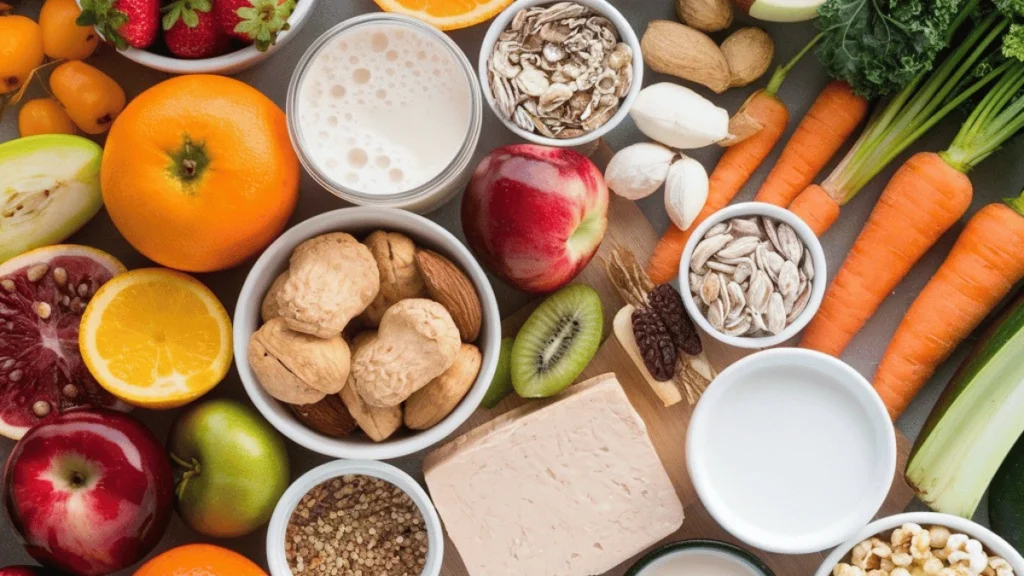Introduction: A New Era for Food in South Africa
This is your guide to the rise of plant-based diets in South Africa.
It’s an exciting time to be thinking about food in South Africa.
Our country is buzzing with energy, fresh ideas, and a strong sense of community. I’ve seen this same spirit influencing how we eat.
Our food choices matter more than what’s on our plate. They link to our health, the environment, and our future.
For a long time, we’ve faced some tough challenges here at home.
South Africa’s Unique Position
I’m talking about the “double burden of malnutrition.”
This concept shows that we face both ongoing hunger and rising obesity rates. It also links to diet-related diseases, like diabetes.
Diabetes is one of the leading causes of death in our country.
Also, you’ve likely seen the environmental pressures we face. Water scarcity and land use problems are exacerbated by the way we produce food.
But here’s the good news: something incredible is happening.
The Popularity of Plant-Based Diets
Plant-based diets are gaining popularity every day. This shift is gaining momentum.
As someone who cares about making a positive change, it is incredibly inspiring. We’re not just following a trend; we’re leading the way in Africa for a sustainable lifestyle.
Increasingly, more South Africans are opting for plant-based diets for various reasons. You can see it in the numbers.
This isn’t about giving up the foods we love.
On the contrary, it’s about embracing a new era for food that is both delicious and impactful.
This movement enables us to address our health and environmental issues directly.
In this series, we’ll explore how a plant-forward diet can enhance your health, benefit the planet, and reduce grocery costs.
So, let’s dive into what this new era means for all of us.

The Compelling Case for Plant-Based Living
When I first heard about a plant-based diet, I was sceptical.
My plate often had a big heap of chicken and cheese. Giving these foods up felt nearly impossible.
But as I started learning more, I realised that a plant-based lifestyle is about so much more than just food. It’s a good choice for your health, the planet, and the well-being of the animals we share our lives with.
If you’re thinking about a change, here’s why plant-based living is a great option.
Health and Wellness
First, let’s talk about health.
Switching to a plant-based diet can have incredible benefits for your body. Think about this: you’re eating whole, unprocessed foods like fruits, veggies, legumes, nuts, and seeds.
You naturally eat less saturated fat and cholesterol. This can help lessen your chances of getting long-term diseases. Studies show that consuming a variety of plants can help lower blood pressure. It also improves heart health.
Furthermore, these diets are rich in fibre, which is good for your digestive health and can help you control your weight.
I’ve found that I have more energy and feel lighter throughout the day, and that alone has been a game-changer for me.
Environmental Responsibility
Beyond personal wellness, there’s the environmental impact to consider. This was a big one for me. The truth is, the way we produce meat and dairy has a significant carbon footprint.
Animal farming is a major contributor to greenhouse gas emissions, deforestation, and water pollution.
So, by choosing plant-based meals, you’re actively reducing your environmental impact.
It’s a simple change, but when millions of people make that same choice, the cumulative effect is massive.
I now see my dinner plate as a small act of environmental activism. That thought feels empowering.
Ethical Considerations
Finally, and perhaps most importantly for many, there’s the ethical side of things. I’ve come to understand that adopting a plant-based lifestyle is a compassionate choice. It’s about reducing animal suffering in our food system.
The more I learned about modern farming practices, the more I felt compelled to make a change. It’s a way of aligning my values with my actions, and for me, that’s incredibly important.
We should be kind to all living beings. A plant-based diet is a simple way to show kindness.
So, where do you begin?
Starting a plant-based journey doesn’t have to be overwhelming. You don’t have to go all in overnight.
I found it easier to start by incorporating more plant-based meals into my week.
Try a vegan meal prep once a week. You can also experiment with tasty vegan recipes for breakfast and lunch. Try substituting milk with a plant-based alternative, such as almond or oat milk, and see how you like it.
The key is to find foods you love and enjoy them. You’ll soon discover a world of vibrant flavours and exciting new ingredients.
In conclusion, the case for a plant-based lifestyle is a compelling one.
It’s a proactive step toward a healthier you, a healthier planet, and a more compassionate world. I know it might seem daunting at first, but trust me—it’s worth it.
Choosing a plant-based lifestyle has been one of the best decisions I’ve made. I’m thrilled to see more people joining this movement!
The Current Landscape of Plant-Based Eating
Eating plant-based food in South Africa today is quite different from what it was just a few years ago. I remember when finding a decent vegetarian option at a restaurant was a struggle, let alone a vegan one. However, it’s an entirely different story now.
Who is Making the Switch?
How many of us are making the switch?
It can be hard to get exact numbers, but the trend is clear.
A small number of South Africans are strictly vegan. However, about 20% of us are working to reduce our meat consumption.
We’re becoming a nation of flexitarians, which is a significant development.
Source: Fitbody Formula
It makes sense. I’ve seen that the reasons for this shift are very varied.
For some, it’s about health. This is especially true with the rise in chronic diseases.
A big motivator for me is how a plant-based lifestyle helps the environment. It plays a key role in saving our precious water resources. A deep sense of compassion for animals motivates others.
Overcoming Barriers
However, it’s not all sunshine and supermarket shelves full of options. I’ve heard many friends and family members discuss the challenges as well.
Many believed that vegan food was a luxury—something only a few could afford.
And let’s be honest, that can still be a barrier for many.
Finding affordable plant-based protein can be tough. Plus, learning a new way to cook might seem overwhelming.
Despite these hurdles, the landscape is changing fast.
I’m noticing that more restaurants and cafés are serving great plant-based dishes. This trend is spreading beyond the big cities.
Even our big supermarkets are adding more options. They now offer plant-based milk, cheeses, and tasty meat alternatives.
This increased accessibility enables more people to see what a plant-based diet looks like in their own homes.
A Strategic Guide to Promoting a Plant-Based Future
I’m a strong supporter of this movement. I often think about how we can improve and move forward.
It’s one thing to see the momentum, but it’s another to build a real, strategic roadmap to a more plant-based future.
It’s not about grand, overnight changes, but about a few key areas where we can all make a difference.
Education and Awareness
First, one of the most powerful things we can do is to demystify plant-based eating.
The most common barrier I hear about is a lack of knowledge—people don’t know where to start or what to cook. This is where strategic education comes in.
Organisations like PAN South Africa are doing great work. They offer nutrition courses and run challenges. These activities show how easy it can be to manage diabetes with a plant-forward diet.
We need more campaigns and resources. They should be practical and straightforward. It’s essential to demonstrate that this lifestyle is accessible to everyone.
Next, we have to tackle the big one: affordability. I completely understand why many feel that a sustainable diet is a privilege.
We need to promote indigenous, nutrient-rich plant foods. These include amadumbe, cowpeas, and traditional grains. They are part of our heritage, affordable, and resilient.
Making plant-based foods more competitive in stores and government programs is key. This helps promote healthy eating for everyone.
Policy and Industry
Ultimately, a truly successful strategy requires collaboration from all parties involved.
It’s exciting to see our government making progress on new labels for plant-based products.
This policy support is key.
It helps consumers make informed choices.
But it’s not just about policy.
Real magic occurs when public health experts, food producers, community leaders, and local chefs team up.
It’s about creating a system where a plant-based lifestyle isn’t just an option; it’s a choice everyone supports and celebrates.
Conclusion: Cultivating a Healthier, More Sustainable South Africa
As I observe the evolving food scene in our country, I see that plant-based eating is more than just a trend.
It’s a strong, practical answer to many challenges we face.
This dietary change can significantly improve public health. It helps fight chronic diseases that burden our communities.
It’s also a simple way for us to contribute to creating a sustainable lifestyle. This helps save our precious natural resources.
Ultimately, this is a journey we are on together. It’s not about perfection or a sudden, drastic change. Instead, it’s about taking small, conscious steps.
Every choice we make creates a ripple effect. You can swap one meal a week for a tasty plant-based dish.
Try new recipes with local foods, too. Also, don’t hesitate to ask for more options at your favourite restaurant.
Looking ahead, I am incredibly optimistic about what we can achieve. With more plant-based protein options available, education is key. Community and policymaker support is growing, so we’re headed in the right direction.
Embracing a plant-forward diet changes more than our meals. It helps create a healthier, stronger, and more vibrant future for all of South Africa.
What has been your experience? Share your thoughts in the comments below.



2 Responses